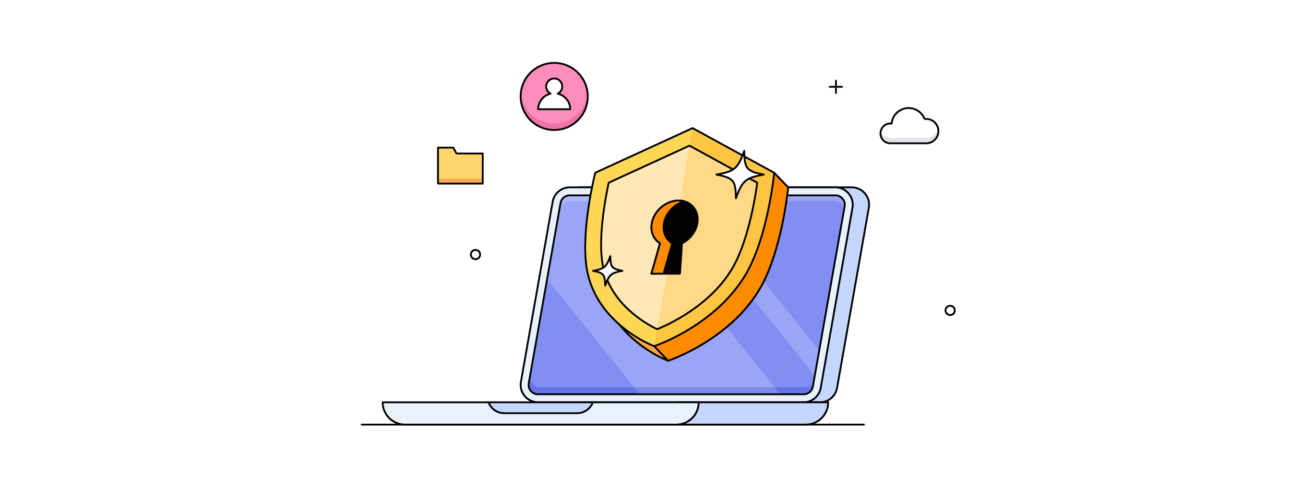
How to keep your data safe while working remotely
Cyber threats like hacking, data leaks, and phishing attacks can affect not only large corporations but also individual users. Let’s go over the key strategies to protect your data while working remotely.
1. Use strong passwords and a password manager
One of the most common ways hackers gain access to accounts is through password guessing. Simple combinations like 123456 or qwerty are extremely vulnerable. It’s best to use complex passwords with uppercase and lowercase letters, numbers, and special characters. To avoid the hassle of remembering multiple passwords, consider using a password manager (such as Bitwarden or 1Password), which securely stores and generates strong passwords for you.
2. Enable two-factor authentication (2FA)
An extra layer of security comes from enabling two-factor authentication (2FA). Even if someone manages to get your password, they won’t be able to access your account without the second authentication code. The best option is to use an authenticator app (such as Google Authenticator), as SMS codes are less secure due to the risk of SIM swapping.
3. Use secure networks
Connecting to public Wi-Fi (in cafes, hotels, or airports) can expose your data to potential cyber threats. To prevent this, always use a VPN service (such as NordVPN, Mullvad, or ProtonVPN), which encrypts your internet traffic and keeps your online activity secure.
4. Be cautious with emails and links
Phishing is a fraudulent technique where attackers send emails or messages pretending to be legitimate organizations to steal personal data. These messages often contain urgent warnings, such as “Your account has been locked. Click here to restore access.” Always double-check the sender, avoid clicking suspicious links, and, when in doubt, visit the official website manually rather than through the link in the email.
5. Keep your software up to date
Operating systems, browsers, and other software regularly receive updates that fix security vulnerabilities. Using outdated software increases the risk of cyberattacks. To stay protected, always install updates as soon as they become available.
6. Encrypt your data and use secure storage
If you store important files on your computer, consider encrypting them for extra security. You can create an encrypted storage container using VeraCrypt or use cloud services with strong encryption, such as Google Drive, OneDrive, or Dropbox.
7. Back up your data regularly
Unexpected events such as hardware failures, theft, or data loss can occur at any time. To prevent losing important information, keep regular backups in multiple locations, such as cloud storage and external hard drives. This ensures quick recovery when needed.
8. Separate work and personal devices
If you’re using a company-issued laptop, avoid installing third-party software or visiting unsecured websites. If you’re working on a personal device, make sure it has an antivirus, firewall, and disk encryption enabled (such as BitLocker for Windows or FileVault for macOS).
9. Lock your screen when away from your computer
Regardless of whether you’re working from home, in the office, or in a co-working space, always lock your screen when stepping away. Enabling automatic screen lock or manually locking your computer each time helps prevent unauthorized access.
10. Maintain physical security
Digital security is crucial, but physical security should not be overlooked. If working in a public place, never leave your laptop unattended. When traveling, ensure your device is password-protected and encrypted to prevent unauthorized access in case of loss or theft.
Conclusion
Keeping your data safe while working remotely is simple if you follow a few key steps: use strong passwords and two-factor authentication, work only on secure networks, keep your software updated, and be cautious with suspicious emails and links. By taking these precautions, you can prevent data leaks and keep your information secure.

